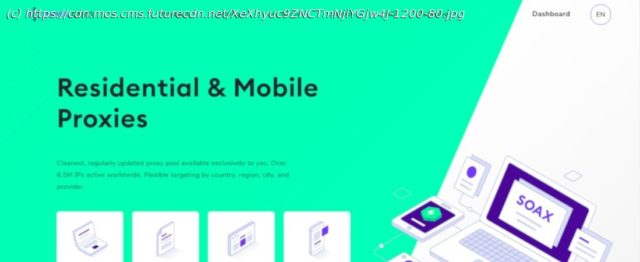Our review of the SOAX proxy service, looking at its features, pricing, and ease of use, while comparing its strengths and weaknesses to rival proxy services.
SOAX is one of the new entrants in the proxy service provider space having begun operations in 2019. The UK-registered Russian operation offers residential backconnect proxies that it pitches to anyone looking to monitor prices, do market research and scrape websites. SOAX offers two types of residential proxies. The WiFi proxies are IP addresses of devices connected to a Wi-Fi network. These are priced cheaper than Mobile proxies that include IP addresses of mobile devices connected to a 4G network. Both these proxies are offered in four different pricing plans — Micro, Starter, Regular, and Business. The more expensive plans offer a better per GB rate than the cheaper plans. For instance, the Micro WiFi plan costs $15/GB for 5GB of traffic, while the Business WiFi costs just $5/GB for 500GB of traffic. Similarly, you can pay $70 for the Micro Mobile package that includes 2GB of traffic (and comes to $35/GB), while the $2500 Business Mobile plan that includes 100GB of traffic costs $25/GB. However, unlike many of its peers, all packages advertised on SOAX’s website are monthly plans. That said, you can always reach out to the company for custom plans. If you want to take the service for a spin, SOAX does offer a paid trial for $1.99, which offers 100MB of traffic. Interestingly, you can subscribe to as many trial packages as you want to thoroughly test the proxies for your use case. SOAX accepts payment through Wire Transfers, and PayPal. Compared to some of its peers, SOAX’s pool of 8.5+ million IPs isn’t particularly large. But it’s fairly impressive when you consider the fact that this number only includes residential proxies. As mentioned earlier SOAX only offers WiFi and Mobile residential proxies, which it claims are owned by internet service providers and assigned to real devices, such as smartphones and laptops. Since these proxies regularly go offline, SOAX, like its peers, rotates them automatically to ensure better reliability for its customers. In addition to this rotation, users also get the option to specify a duration after which proxies are forcefully rotated.






